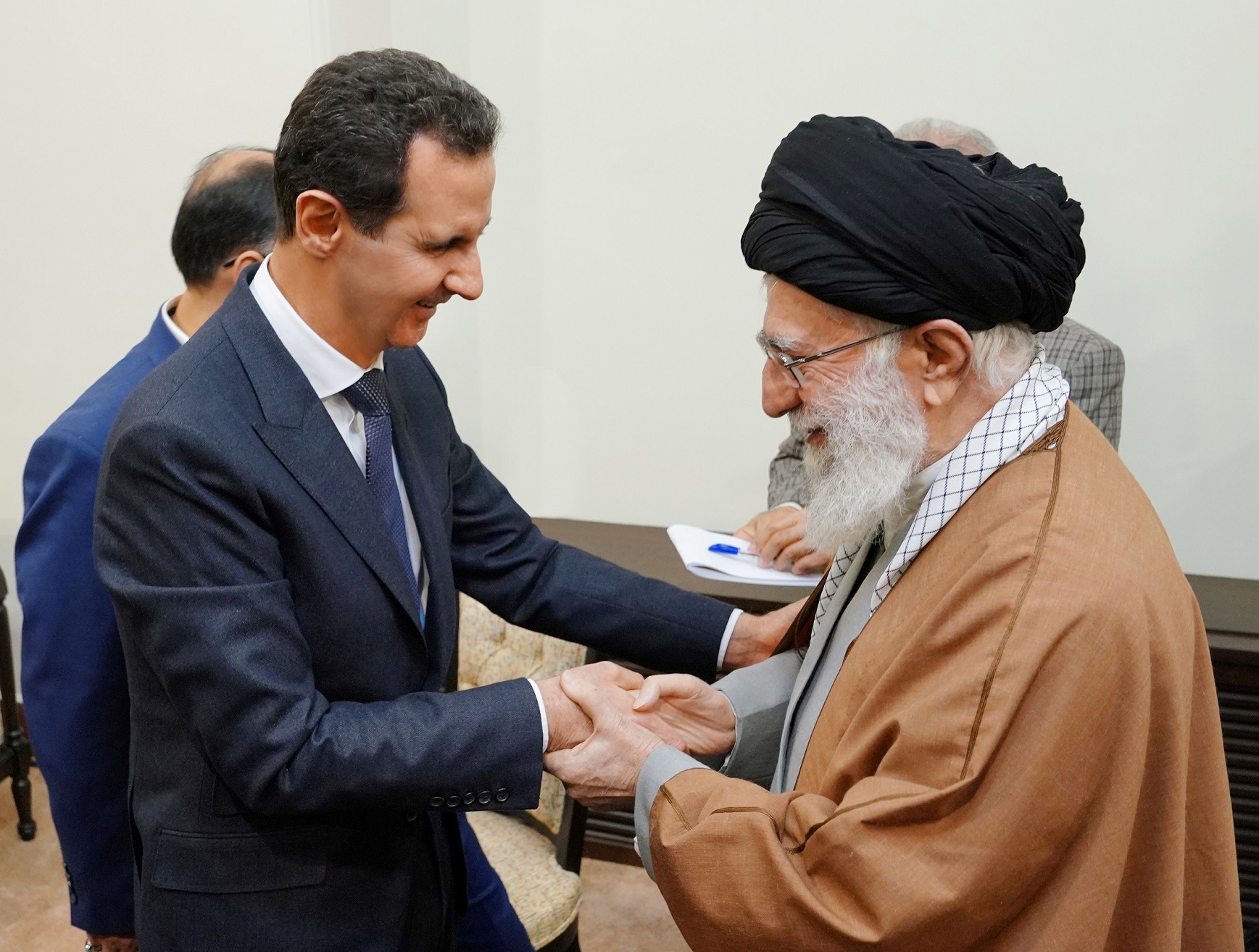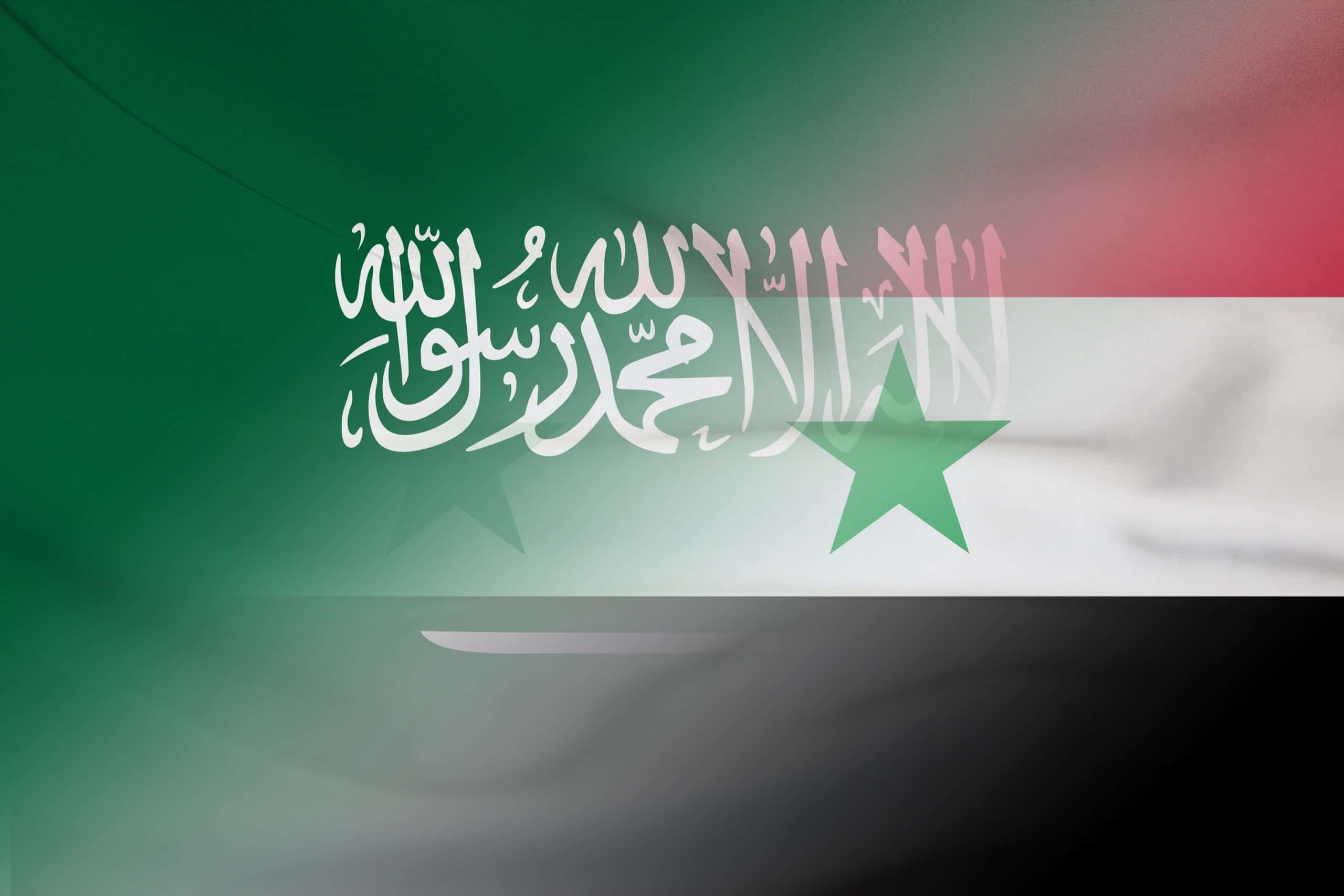Publications
INSS Insight No. 1705, April 2, 2023
The trend toward rapprochement in the Middle East continues, with the expected renewal of diplomatic relations between Saudi Arabia and Syria. The regional détente process in various arenas changes Israel’s strategic environment and requires that it rethink what current regional architecture can better curb Iran.
The normalization process between Syria and the Arab world scaled a new height with the expected renewal of diplomatic relations between Saudi Arabia and the Assad regime, which were severed over a decade ago. During the first years of the civil war in Syria, Saudi Arabia sought the downfall of the Assad regime and acted to fulfill this aim via support for opposition organizations and rebel groups. “What is happening in Syria is not acceptable for Saudi Arabia,” said King Abdullah bin Abdulaziz in 2011, and has nothing to do with “religion, or values, or ethics”; he was the first Arab leader to decry the Assad regime. In 2012 the Kingdom closed its embassy in Damascus and expelled the Syrian ambassador.
The newly ripened contacts between Saudi Arabia and Syria are not surprising, given the reports of meetings and statements on this issue over the past two years. In early 2023, in parallel with contacts between Riyadh and Tehran, contacts between Riyadh and Damascus gained momentum. In January, their economic relations were renewed in practice with the renewed entry of Saudi goods into Syria. Saudi Arabia even confirmed that they had reached agreement regarding the renewal of consular relations as a first stage. Beyond the particular processes for regulating relations between Riyadh and the Syrian regime, there is an Arab deal reportedly spearheaded by Jordan, whereby regional states will recognize Assad, send billions of dollars of aid for Syrian reconstruction, and pressure the US and Europe to rescind the sanctions against Syria. In exchange, Assad will commit to meet several conditions: hold renewed talks with the Syrian opposition, allow Arab forces to be stationed in Syria to protect returning refugees, stop captagon smuggling in the region, and finally, reduce Iranian presence in Syrian territory.
With the progress in contacts between Riyadh and Damascus and after the earthquake in early February, Saudi Foreign Minister Faisal bin Farhan declared in early March that the policy of isolating Assad had failed. He claimed that the status quo is unsustainable and even hinted at the need to bring Syria back into the Arab League. The earthquake and the resulting humanitarian disaster led Saudi Arabia to join regional aid efforts to Syria, which sped up the rapprochement between the countries. Planned developments in Saudi-Syrian relations are the upcoming visit by the Saudi Foreign Minister in Syria immediately after the end of Ramadan, and an Arab League summit in May in Saudi Arabia.
The warming of relations between Riyadh and Damascus was preceded by a rapprochement process between the Assad regime and other Arab states, particularly Jordan and the UAE. The UAE maintained political and economic connections with the Syria elite nearly throughout the entire civil war, and reopened its embassy in Syria in 2018. In March, Abu Dhabi even hosted President Assad and his wife, after Assad visited Oman in February. Jordan for its part officially announced renewed relations with Syria in late 2021 after a decade in which they had no formal ties. There are thus only a few countries left in the Middle East that refuse to recognize the Syrian regime and establish relations with it in the absence of a comprehensive political settlement; leading this group is Qatar, which has the most hawkish policy towards Assad.
Motives and Significance of this Move
Renewed relations between Damascus and Riyadh stem from number of causes and have significant implications for the Middle East in general, and for Israel in particular:
- Assad is here to stay: After over a decade in which the US took a “maximum pressure” approach to Assad with the aim of leading to political change in Syria, it is clear today that states in the region believe that this approach failed. Assad is not only not likely to step down as President; he has no intention of changing his policy. This leads to the regional need to “work with what there is.”
- Little international interest: The basic distrust between regional states still exists, but the détente processes aim to ease local tensions and create a more comfortable regional reality for the different sides. This is in part a result of the understanding that international attention is focused on other arenas, primarily China and Ukraine, and that regional states must therefore deal with regional challenges on their own.
- The Iranian challenge: There is a belief in the Arab region – or a hope – that over time Assad will realize that the solution to many ills in his country can come from the Gulf states and not from his “natural” partner – Iran, and that in light of this he will draw closer to the Sunni states and distance himself from the Shiite axis. The need to deal with the Iranian challenge thus creates a regional strategy of hedging: an attempt (by the Sunni states in their attempt to draw closer to the Assad regime) to undermine Iran, alongside an attempt to draw closer to Iran (Riyadh and Tehran), along the lines of “keep close to your enemies.” In the background, there is a clear understanding among central actors in the region that the regional balance of power is tilting in Iran’s favor, and they need to hedge – with a clear preference for diplomacy over conflict – and to ease tensions as far as possible.
- Blocking the captagon threat: Beyond the shared threat posed by Iran, there is another serious threat facing regional states – the unprecedented spread of captagon, the highly addictive narcotic produced in Syria with clear involvement by the regime and its security bodies. The Syrian regime did not respond to inquiries on this matter by Jordan, the UAE, and Saudi Arabia over the past year. This rising threat to Saudi Arabia is apparently a motivation for the Saudis to tighten their relations with Damascus, in order to gain leverage with the Assad regime on this issue.

Implications
Between Riyadh and Tehran: Riyadh and Tehran’s decision to move forward with talks regarding renewed relations was made at the same time as the signing of the agreement to renew relations between Saudi Arabia and Iran, Syria’s ally. It is therefore likely that Riyadh and Tehran also reached agreements regarding Syria, including Iran setting conditions for Saudi Arabia not to harm Iranian interests. Iran has a clear interest in stabilizing the Assad regime in the territories it controls, and thus needs access to the Saudis’ extensive capital. It is therefore likely that Iran supports the rapprochement between Saudi Arabia and Syria. Furthermore, Saudi Arabia bears more religious, economic, and political weight than any other Arab state. The leading Sunni state, custodian of the Islamic holy sites, and the largest economy in the Middle East is likely to offer Assad a formal stamp of approval for returning to the embrace of the Arab world by renewing relations with him, while making economic investments that will strengthen his regime for the coming years.
On the other hand, in the longer term, intentions of renewing overall Arab relations with Damascus, if they are realized, may give Assad maneuvering capabilities among a wider range of actors and therefore reduce his dependence on the Iranians; he may even demand that they reduce their presence on his soil.
The US status in the region: Arab recognition of Assad counters the official stance of the United States, which insists on the isolation of the Assad regime. Riyadh joining a regional rapprochement process with Damascus may therefore be perceived as additional defiance of Washington and indicate a further decline in the image of US power in the region, especially because Russia and China are the matchmakers who put together these Saudi diplomatic moves.
For Israel, rapprochement between the Gulf states and Iran and Syria will likely further weaken Israeli efforts to form an anti-Iranian camp and isolate Iran, as a central component of the struggle between them. The Iranian threat to Israel is increasing, while various actors in the region are promoting agreements and compromises with Tehran. Alongside the Saudi Arabia-Iran agreement, there are warming relations between the UAE and Qatar, Iran and Iraq, Turkey and Egypt, and Iran and Bahrain. The chances of reaching a long-term agreement in the Yemeni theater has also increased.
The expected renewal of relations between Damascus and Riyadh is part of a Saudi attempt to mitigate conflict at key friction points in the Kingdom’s strategic environment, some of which it itself created and exacerbated. The aim is to encourage economic growth and fulfill its 2030 Vision targets for long-term socioeconomic development in the Kingdom; toward that end it seeks to create a reality of “zero problems” in foreign relations. This is a strategy that no longer views the Middle East as a zero-sum game. Under certain conditions, Israel may be able to integrate in that strategy, as Riyadh does not see a problem with advancing relations with both Iran and Israel simultaneously, under the conditions and circumstances that it prefers, primarily the need to advance the Palestinian issue and Riyadh-Washington relations.
Regarding Israeli attacks in Syria, the widening regional process of renewing relations with Assad will probably lead regional states to increase pressure on Israel to refrain from attacks, mostly against civilian infrastructure of the regime (such as international airports), which undermine Syrian sovereignty and stability at a time when Syria has renewed its diplomatic status.
Finally, rapprochement between Syria and Saudi Arabia is a central part of a changing regional picture in which most of the actors, Arab and non-Arab, seek to be closer to rivals while diversifying their alliances and sources of aid to include powers competing with the US – Russia and China. It is likely that the regional détente process will continue in different arenas and change Israel’s strategic environment in a manner that will require rethinking about relevant regional architecture for dealing with Iran. Consequently, Israel should avoid moves that may cause escalation in the Palestinian and regional contexts, which may reduce its relevance and its assets and, in a more far-reaching scenario, lead to its isolation. Israel should work to maintain and strengthen its understandings with its partners in peace and normalization and act to emphasize its assets in the regional arena and with the United States.



